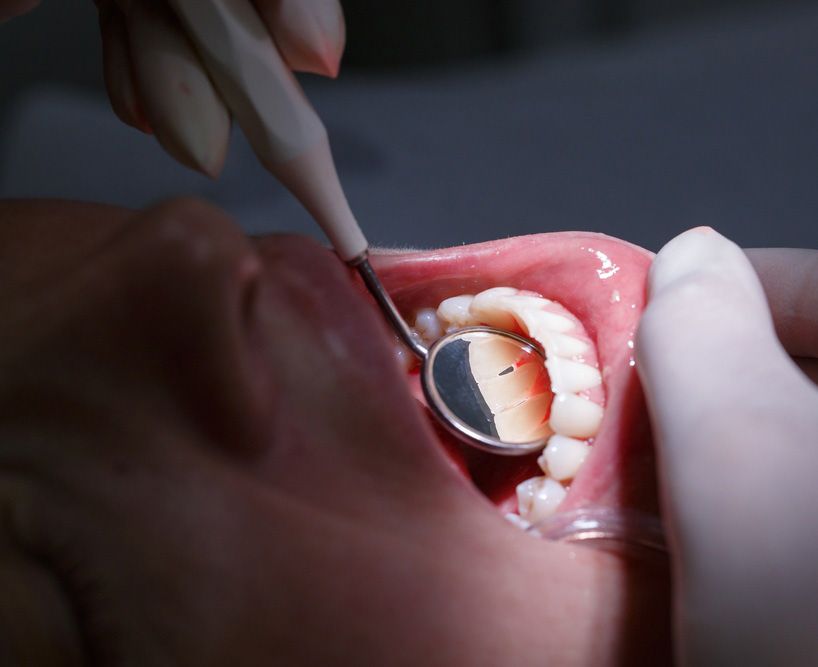- Case-Based Roundtable
- General Dermatology
- Eczema
- Chronic Hand Eczema
- Alopecia
- Aesthetics
- Vitiligo
- COVID-19
- Actinic Keratosis
- Precision Medicine and Biologics
- Rare Disease
- Wound Care
- Rosacea
- Psoriasis
- Psoriatic Arthritis
- Atopic Dermatitis
- Melasma
- NP and PA
- Skin Cancer
- Hidradenitis Suppurativa
- Drug Watch
- Pigmentary Disorders
- Acne
- Pediatric Dermatology
- Practice Management
- Prurigo Nodularis
- Buy-and-Bill
Article
How does diet, oral health influence psoriasis?
Author(s):
Oral health, habits and diet may influence disease severity in psoriasis, says a study published in the Dermatology Online Journal.
Studies have previously suggested that oral health and oral microbiome are correlated with psoriasis severity. (©Zlikovec/Shutterstock.com)

Oral health, habits and diet may influence disease severity in psoriasis, says a study published in the Dermatology Online Journal.
NEW: Does gluten intake influence psoriasis, psoriatic arthritis?
Studies have previously suggested that oral health and oral microbiome are correlated with psoriasis severity. To delve deeper into how and why this relationship exists, researchers at The Ohio State College of Medicine performed a retrospective case-control study in which they surveyed 265 patients from a Dermatology Clinic at The Ohio State School of Medicine. Out of the total participants surveyed, 100 suffered from psoriasis. The surveys collected information on the duration of the patient's skin condition, patient-reported outcomes, and dietary intake as well as additional questions about dental care and oral hygiene.
The most common skin disorders in the control population were contact dermatitis, skin cancer examination and acne. Logistic regression was used to compare psoriasis patients to their controls. Stepwise univariate analysis was used to remove variables that could potentially cause bias such as smoking, obesity and a family history of psoriasis.
RELATED: Behavioral modifications may reduce psoriasis severity
The results of the study showed that the greatest predictors of psoriasis were age, family history of psoriasis, personal history of strep throat, history of rheumatoid arthritis and the experience of oral pain/discomfort 12 months preceding psoriasis diagnosis.
Among the psoriasis patients surveyed, those who rated their gum health as poor or very poor generally exhibited a significant increase in the severity of their psoriasis symptoms. Furthermore, psoriasis patients who experienced difficulties with their speech because their dental trouble also experienced increased in their perceived psoriasis severity. Interestingly, patients who reported eating healthier diets with at least one serving of fresh fruit per day experienced mild psoriasis symptoms in comparison to patients who did not have these healthy dietary practices.
RELATED: Weight matters in psoriasis, psoriatic arthritis
This study has several limitations, including the fact that results are based on a small cohort of patients. Furthermore, data was collected from retrospective surveys which is plagued by recall bias. Another limitation is that patients included in the study were receiving treatment in a dermatology clinic, meaning all patients who did not seek treatment for their psoriasis were excluded which may have led to a selection bias.
The take home message from the results of this study is that there is preliminary data arguing that oral self-care, oral hygiene and eating fresh fruit may benefit patients with psoriasis. However, due to the limitations of this study, further research is necessary to confirm the authors findings. In the meantime, suggesting healthy eating habits and oral hygiene in addition to the usual exercise and weight loss to complement treatment in psoriasis patients appears to be a reasonable practice.





